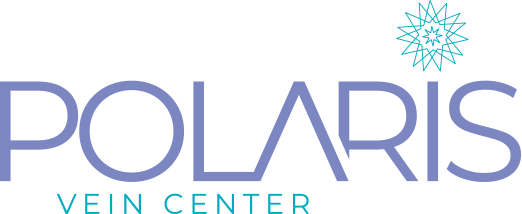When to Be Concerned About Varicose Veins

Columbus Vein Center has helped men and women recover from a variety of varicose vein problems. If you’re experiencing pain, swelling, bleeding, inflammation or have an open sore on your leg that is slow to heal, we recommend that you see a doctor for a professional evaluation.
Are varicose veins dangerous?
Not all varicose veins require medical treatment; some can be managed with lifestyle changes that prevent them from getting worse. Maintaining a healthy weight, exercising on a regular basis, elevating the leg throughout the day and wearing compression stockings can help keep varicose veins from advancing. More severe varicose veins, however, need proper medical treatment to ensure you don’t develop more serious conditions.
Do varicose veins go away on their own?
Unfortunately, no. Unlike a bruise that heals overtime, once a valve malfunctions inside the vein it cannot repair itself. If left untreated, varicose veins may become larger and more symptomatic.
Hidden dangers of varicose veins
Varicose veins are a result of malfunctioning valves in your veins that cause the blood to pool in your lower leg rather than be pumped upwards towards the heart. If not treated, varicose veins can lead to secondary issues that are much more serious, such as thrombophlebitis or ulcers.
Bleeding
If you accidentally bump or scrape a varicose vein it may rupture and bleed. Sometimes the bleeding can be excessive and difficult to stop which scares people enough to go to the emergency room.
Ulcers
A scratch or a cut can result in a sore that is very slow to heal. An ulcer can occur because the skin and tissue are not as healthy, related to the increased pressure from the distended veins. Without appropriate treatment, an ulcer may become infected and the infection can spread to the bone or even into the bloodstream. In addition, surrounding tissues around the ulcer may become necrotic and die.
Clotting
Varicose veins increase the risk of blood clots and venous inflammation which can result in painful, tender masses under the skin. Deep Vein Thrombosis (DVT) occurs when a blood clot forms in the deep vein of the leg. In this case, the pain and swelling is more severe and can even affect your ability to walk.
Are there topical remedies to treat varicose veins?
If you’ve seen ads for topical creams promising to eliminate the appearance of varicose veins, don’t believe what you’ve heard. Varicose veins are a result of an underlying venous insufficiency and no lotion can treat this disorder.
Treating varicose veins at home
While you cannot get rid of varicose veins on your own, there are ways to improve blood flow and reduce inflammation.
Regular Exercise
Walking, swimming and cycling, along with leg-specific exercises like leg lifts, side lunges and calf raises, help strengthen and stretch the veins around the legs.
Healthy Weight
Carrying excess weight puts stress on the body and increases the pressure on your veins. Maintaining a healthy weight is good for many reasons, including vein wellness.
Eating Right
Did you know certain foods can reverse inflammation and improve blood flow? Consuming foods that are high in fiber, antioxidants, omega-3 and magnesium are only a few examples.
When should you see a doctor for varicose veins?
If you’re concerned about your varicose veins, speaking to a vein specialist will get you the answers you need. Vein doctors can perform high-tech ultrasound examinations to pinpoint defective veins and evaluate their condition.
How do you know if you need varicose vein surgery?
Depending on the size of your varicose veins there are minimally invasive procedures available including laser treatments, radiofrequency closure, sclerotherapy and VenaSeal (glue). After an examination, your doctor can explain your options and recommend the procedure that’s best for you.
What happens if I wait too long to treat my varicose veins?
If you’re experiencing pain, numbness, tingling, itching or other discomfort due to varicose veins, ignoring them can only make it worse. In addition, new problems could develop such as painful blood clots.
If you’re worried about varicose veins, you’re tired of suffering from pain and swelling in your legs or you just want your legs to look and feel better, get a professional evaluation from Columbus Vein Center. Contact us today to schedule a consultation and find out your treatment options. We’re happy to answer your questions and get you on the path to better leg health.

